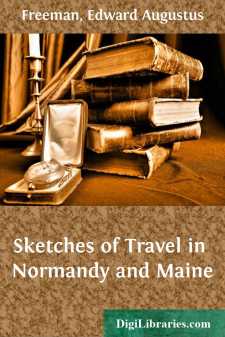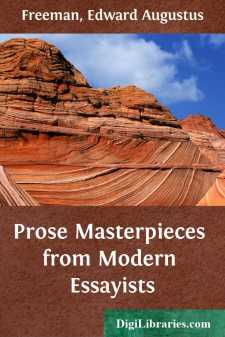Categories
- Antiques & Collectibles 13
- Architecture 36
- Art 48
- Bibles 22
- Biography & Autobiography 813
- Body, Mind & Spirit 142
- Business & Economics 28
- Children's Books 15
- Children's Fiction 12
- Computers 4
- Cooking 94
- Crafts & Hobbies 4
- Drama 346
- Education 46
- Family & Relationships 57
- Fiction 11828
- Games 19
- Gardening 17
- Health & Fitness 34
- History 1377
- House & Home 1
- Humor 147
- Juvenile Fiction 1873
- Juvenile Nonfiction 202
- Language Arts & Disciplines 88
- Law 16
- Literary Collections 686
- Literary Criticism 179
- Mathematics 13
- Medical 41
- Music 40
- Nature 179
- Non-Classifiable 1768
- Performing Arts 7
- Periodicals 1453
- Philosophy 64
- Photography 2
- Poetry 896
- Political Science 203
- Psychology 42
- Reference 154
- Religion 513
- Science 126
- Self-Help 84
- Social Science 81
- Sports & Recreation 34
- Study Aids 3
- Technology & Engineering 59
- Transportation 23
- Travel 463
- True Crime 29
Edward Augustus Freeman
Edward Augustus Freeman (1823–1892) was a British historian and prolific writer, best known for his work on the history of the Norman Conquest of England. His most notable work is "The History of the Norman Conquest of England" (1867-1879), which provided a detailed and scholarly analysis of the period. Freeman was a supporter of racial theories, particularly Anglo-Saxonism, and believed in the superiority of certain races in shaping history. Besides his historical writings, Freeman was also active in politics and served as the Regius Professor of Modern History at Oxford University.
Author's Books:
Sort by:
PREFACE "Beyond doubt the finished historian must be a traveller: he must see with his own eyes the true look of a wide land; he must see, too, with his eyes the very spots where great events happened; he must mark the lie of a city, and take in, as far as a non-technical eye can, all that is special about a battle-field." So wrote Mr. Freeman in his Methods of Historical Study, and he...
more...
THE SCIENCE OF HISTORY. A LECTURE DELIVERED BY JAMES ANTHONY FROUDE AT THE ROYAL INSTITUTION FEBRUARY 5, 1864. Ladies and Gentlemen,—I have undertaken to speak to you this evening on what is called the Science of History. I fear it is a dry subject; and there seems, indeed, something incongruous in the very connection of such words as Science and History. It is as if we were to talk of the color of...
more...



